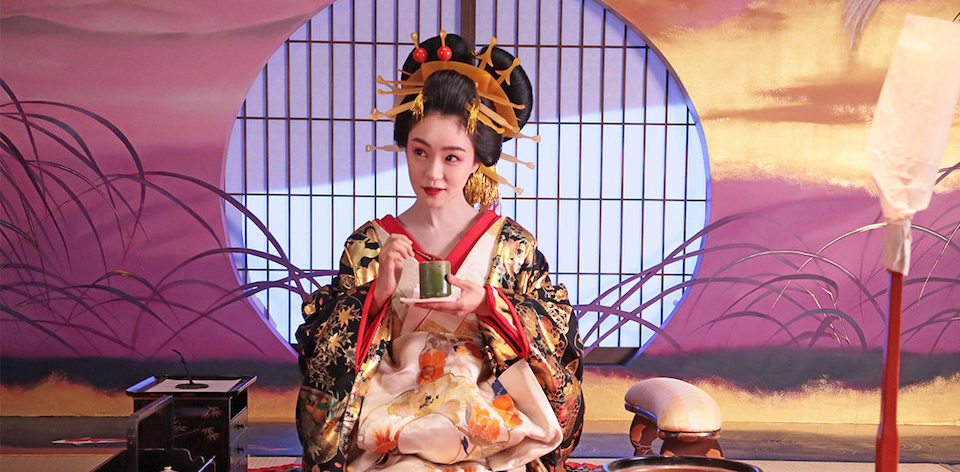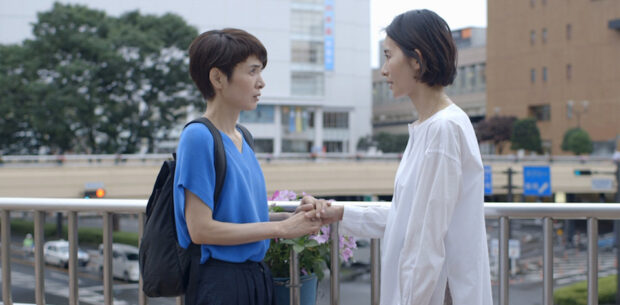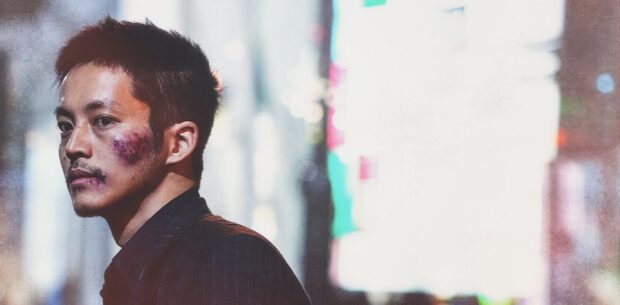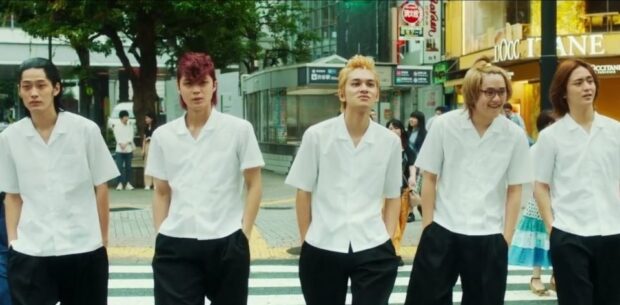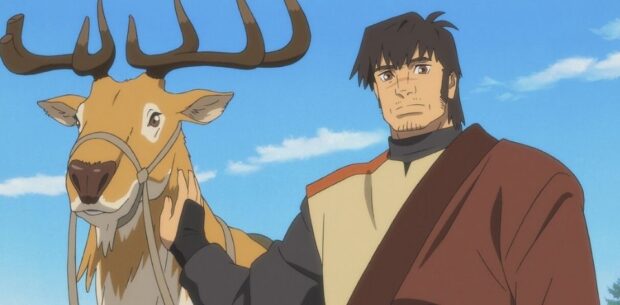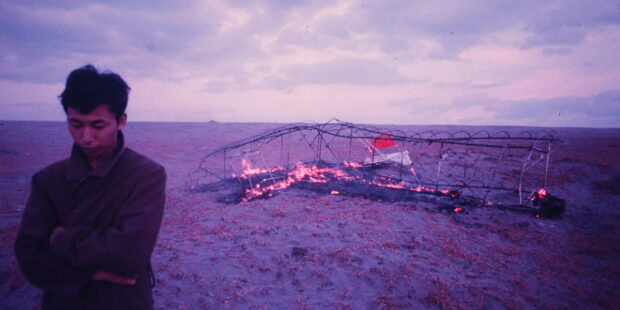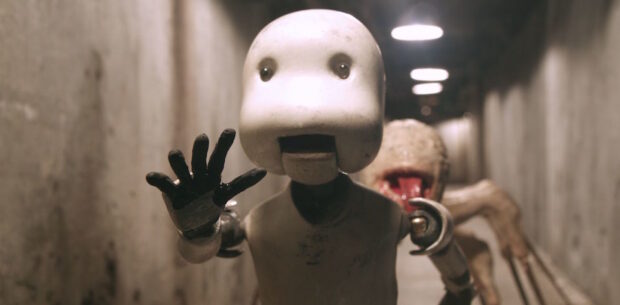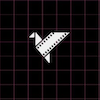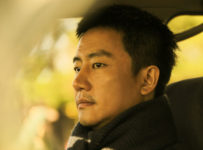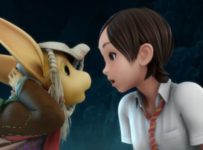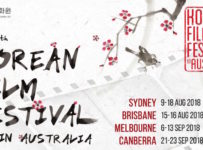The Japanese Film Festival (JFF) in Australia is back for a 25th anniversary edition, running around the country from from 28 October to 5 December.
The program, now available online at the official festival site, is filled with festival favourites and award-winners from 2021, as well as contemporary discoveries, a classics program and an online selection.
HOKUSAI is the opening night film in all cities. Hajime Hashimoto’s biopic of what is arguably Japan’s most famous artist, played by Yūya Yagira (Nobody Knows). With a star-studded cast, be sure to catch the ukiyo-e work on the biggest canvas you’re likely to see them on.
Festival favourites
Leading the pack is a selection of festival winners, including Ryūsuke Hamaguchi’s WHEEL OF FORTUNE AND FANTASY (偶然と想像). Premiering at the Berlinale this year, we saw Hamaguchi trade his typically longer forms for short stories in this Silver Bear winning anthology built around choices not made. If his previous films were about lives lived in their totalities, then this one is about the ones that never got to be. Indeed, the film’s Japanese title translates to something like ‘imagine by chance.’
It sits alongside Naomi Kawase’s TRUE MOTHERS (朝が来る), a film we called a “delicate character piece, filled with trademark beauty and lingering resonance” when it was released in the US back in January. In UNDER THE OPEN SKY (すばらしき世界), the excellent Koji Yakusho once again finds himself on the wrong side of the law in this exploration of institutionalisation resulting from long-term imprisonment. It’s a terrific character study.
Festival favourite HOLD ME BACK (私をくいとめて), along with True Mothers and Miwa Nishikawa’s Under an Open Sky, also heads up the strong collection of films directed by women. Sōshi Matsumoto IT’S A SUMMER FILM (サマーフィルムにのって) is also wonderful: a time-travel coming of age film, it’s a genuinely heartfelt love-letter to film, or at the very least it’s a push against the idea that they are disappearing.
BEYOND THE INFIITE TWO MINUTES (ドロステのはてで僕ら) was another one we discovered at Fantasia this year. Kato (Kazunari Tosa) owns a small cafe where he discovers that his computer screen and TV are windows to a version of himself two minutes into the future. If the time loop film is rapidly becoming our favourite sub-genre, then this one-take time loop screenlife film should be our next sub-sub-genre obsession.
Gangsters who don’t kill (and some who do)
Under the Open Sky is accompanied by two outstanding sequels in a section JFF is calling ‘Gangsters and Outliers.’ LAST OF THE WOLVES (孤狼の血 Level 2), the follow-up to The Blood of the Wolves takes everything up a notch, with a more sophisticated story and a compelling central rivalry.
Similarly, THE FABLE: THE KILLER WHO DOESNT’ KILL (ザ・ファブル 殺さない殺し屋) is of those rare instances where the sequel outdoes the original. All the esoteric elements come together nicely, with some large scale set-pieces that are world class.
Manga on screen
LIARxLIAR (ライアー×ライアー) leads the manga adaptations section, bringing shōjo manga series by Renjūrō Kindaichi to life in a story of a bizarre love triangle. TOKYO REVENGERS (東京リベンジャーズ) was one we caught at Fantasia this year, and it’s a time travelling high school tale with a bit of a difference. After all, Tsutomu Hanabusa (Tori Girl, Kakegurui, Project Dream: How to Build Mazinger Z’s Hangar) is a dab hand at bringing manga to life on screen.
The wonderfully titled THE CORNERED MOUSE DREAMS OF CHEESE (窮鼠はチーズの夢を見る) is a completed different side of manga. Based on the manga by Setona Mizushiro (which Keiko Takemiya, a professor Kyoto Seika University, called one of the BL genre, the live action film comes from director Isao Yukisada, who directed River’s Edge a few years back.
For something a little spookier, there’s THE NIGHT BEYOND THE TRICORNERED WINDOW (さんかく窓の外側は夜), an adaptation of Tomoko Yamashita’s yaoi manga of exorcism and necromancy. Sounds like a fun night out.
Getting animated
It wouldn’t be a JFF without some anime. There are three special screenings of anime films at this year’s festival. POUPELLE OF CHIMNEY TOWN (映画 えんとつ町のプペル), based on on the 2016 children’s picture book by Akihiro Nishino, it’s a high-concept fantasy that’s all momentum will undoubtedly appeal to the younger members of the audience.
Co-directed by Masashi Ando (who worked on Studio Gibli films like Spirited Away and Princess Mononoke) and Masayuki Miyaji (Attack on Titan), THE DEER KING (鹿の王) is an adaptation of Nahoko Uehashi’s novel series Shika no Ō. Plus, it comes from the legendary Production I.G. A must-see for animation fans everywhere.
Last but not least is SATOSHI KON: THE ILLUSIONIST, both a summary of an impressive career and a tribute to one of the driving forces of animation over the last few decades: Perfect Blue (1997), Millennium Actress (2001), Tokyo Godfathers (2003), and Paprika (2006).
Shuji Terayama in Focus
A filmmaker, an avant garde poet and photographer, Tereyama was lost to the world when he died in 1983 at the age of 47. Working right up to his death, the leading light of the Japanese New Wave gets a sharp focus at JFF with four of his film.
THROW AWAY YOUR BOOKS, RALLY IN THE STREETS (1971) is arguably one of his best known works, a radical anti-establishment piece that still stands as one of the greats of Japanese cinema history. Also included in the classics collection Tereyama’s quest for self discovery in PASTORAL HIDE-AND-SEEK (1974), the erotic art house THE FRUITS OF PASSION (1974), and his Oedipal and sensual GRASS LABYRINTH (1979).
Cinephilia and beyond
Naomi Kawase isn’t the only favourite of cinephiles on the list this year. Self-taught animator Takahide Hori reportedly spent seven years bringing the theatrical cut of his dystopian JUNK HEAD (ジャンク・ヘッド) to international screens. With an aesthetic that sits at the exact intersection of Despicable Me and a Tool music video, the painstaking level of detail found in every frame of this film is nothing short of phenomenal.
Other films include STEP, Shinji Hamasaki’s comedy NOT QUITE DEAD, obligatory food film MIO’S COOKBOOK, mystery thriller AI AMOK, medical drama MASKED WARD, and Eiji Sakata’s documentary SUMODO: THE SUCCESSORS OF SAMURAI.
The complete Japanese FIlm Festival program, dates and tickets are now available on their website.
JAPANESE FILM FESTIVAL AUSTRALIA runs from 28 October to 5 December 2021 in. You can check out our entire coverage, and previous years, at our JFF hub. Read more coverage of Japanese films from the silent era to festivals and other contemporary releases. Plus go beyond Japan with more film from Asia in Focus.

